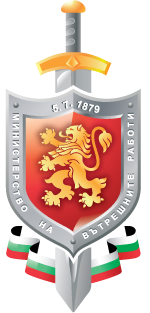Commission steps up its efforts in fighting fraud against the EU budget
Member States reported €280 million in suspected fraud cases involving EU funds. Although this represents less than 0.2% of the EU’s total budget, the Commission is determined to push the fight against fraud a step further. In this context, the Commission today adopted its new Anti-Fraud Strategy to update and modernise its policies to fight against fraud.
This Strategy proposes a set of measures to ensure that the Commission will manage or supervise EU funds, at all levels and in all sectors, with the best possible tools to prevent and detect fraud to the EU budget. This new Strategy will cover the whole "anti-fraud cycle", i.e. from the prevention and detection of fraud at an early stage to investigations, sanctioning and recovery of misused funds. It will also cover both the revenues and expenditure sides of the EU budget, including the budget which is partly managed by EU Member States. An EU Action Plan to fight against smuggling of cigarettes and alcohol along the EU Eastern border accompanies today's Strategy.
Algirdas Šemeta, EU Commissioner responsible for Anti-fraud said: “We have an obligation towards EU taxpayers to get the most out of the EU budget. For this, we must lead by example in ensuring that EU money reaches the right beneficiaries and is spent on purposes for which it is intended. The Anti-Fraud Strategy is a key element to further improve budget efficiency, from the very beginning of the chain till beneficiaries of EU funds. A first outcome of this new approach is the Action Plan to fight against smuggling of cigarettes and alcohol along the EU Eastern border. The Member States and the EU lose billions of euros of tax and customs revenue every year because of the illicit trade in cigarettes. We must take every measure we can to stop this costly illegal activity."
Background. Main features:
The specific strategies that the Commission proposes will be set up to cover the work of Commission's project officers, finance staff and auditors in charge of dealing with EU funds, such as Structural Funds or the European Fisheries Funds.
A more systematic approach to fighting fraud against the EU budget will be adopted thanks to new IT tools to improve the Commission's audit and control's capacities and could be extended beyond current services.
The Commission also proposes to reinforce the role of the European Anti-Fraud Office (OLAF) by enhancing the assistance it already provides to the Commission's services when they face cases of fraud against the EU budget. With this proposal, the Commission also decided to intensify the communication over penalties sanctioning fraudsters or beneficiaries of misused EU funds.
On a regional perspective, the first deliverable of the Anti-Fraud Strategy is the Action Plan to fight against smuggling of cigarettes and alcohol along the EU Eastern border that is presented today. It proposes targeted actions ranging from the strengthening of the capacities on both sides of the border, the setting up of trained mobile units and new equipment alongside the border (automated recognition tools, scanners, night vision etc…) to the need to review the way customs penalties currently apply throughout the EU and to enhance international cooperation, in particular with EU Eastern neighbours. Every year, Member States and the EU lose more than €10 billion of customs and tax revenues due to cigarettes and alcohol smuggling.
The Anti-Fraud Strategy fits into a comprehensive approach to tackle fraud and corruption, and complements recent initiatives launched by the Commission such as the reform of the European Anti-Fraud Office (OLAF (IP/11/321, MEMO/11/176), the Communication on the Protection of EU financial interests by criminal law and administrative investigations (IP/11/644 and MEMO/11/343) and the Communication on Fighting Corruption in the EU (IP/11/678 and MEMO/11/376). It also reinforces the need identified in the preparation of the new Multi-Annual Financial Framework that will be presented next week, to include appropriate anti-fraud measures across the different EU policies.
For more information:
Anti-fraud Strategy 2011, English version (.pdf)
Homepage of Commissioner Algirdas Šemeta, EU Taxation and Customs Union, Audit and Anti-fraud Commissioner
